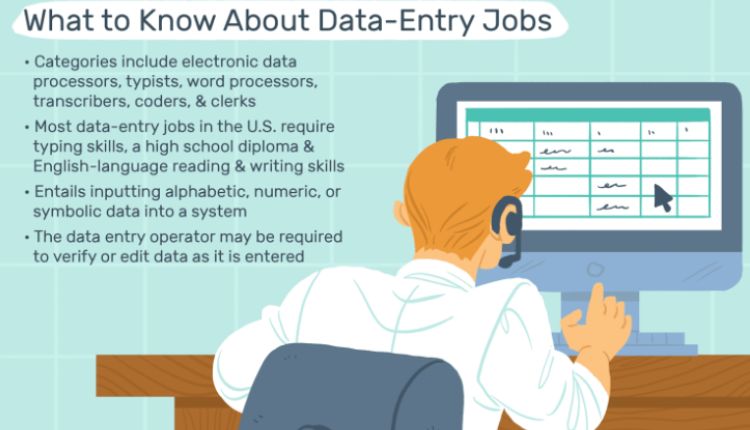
Everything You Should Know About Data Entry: Scope and Benefits
In today’s digital era, every business runs on data. Digitization has had a distinct impact on different companies’ workflow. From customer details to financial records—enterprises generate and process massive amounts of data daily.
However, unorganized data can be a difficult thing to handle. That is where data entry operators and experts come into the picture. They use tools and techniques to insert and store correct data.
What is data entry?
Data entry is inserting data into a computer system, cloud storage, or database for various purposes. Organizations use data entry or store data for analysis, record-keeping, and business decision-making. In data entry, professionals have to store data in an organized manner without error. Most organizations use tools like MS Excel, Google Spreadsheet, Google Document AI, DocuParser, etc.
Data in the data entry process can come from various sources. These are physical documents, surveys, online forms, or other digital sources. Professionals and data entry operators must be experts in quickly typing the data into a particular database or spreadsheet software.
Various scopes of data entry
Data entry encloses a broad range of assignments involving entering data, updating them, and maintaining structure and correctness. Some of the common types and scopes of data entry services are:
- Online data entry: It involves entering data from diverse online sources. These are online surveys, web forms, and e-commerce transactions. Data entry operators might have to enter these data in a cloud spreadsheet or offline apps. Online data entry is widespread for capturing customer information, orders, and online transactions.
- Manual data entry: In this data-entry technique, the data-entry operator enters data from physical documents such as invoices, paper forms, on-paper reports, and receipts. They can use online or offline software to store these data.
- Data-driven system management: Some data entry operators are software-specific experts. Enterprises hire them to manage data for a particular system. They are involved in managing and updating data in database management systems (DBMS), Customer Relationship Management (CRM) systems, Human Resources Information Systems (HRIS), and Enterprise Resource Planning (ERP) systems.
- Error fixing and data cleansing: Professionals review and correct data to ensure that it is accurate, complete, and consistent. They perform data validation and verification and eliminate data redundancy from an existing data entry sheet.
Benefits of data entry
Data entry provides numerous benefits to enterprises and businesses dealing with enormous datasets. Here are some notable benefits of data entry:
- Saves time: Misplaced data or data in an unorganized fashion often consumes valuable time. You can utilize organized data as and when required. Document digitization services can also benefit an organization. It can save organizations valuable time and resources.
- Speed up workflow: Properly managed data increases readability and helps understand the data for better usage. You can use organized data from data entry sheets to quickly use them in analytics, decision-making, inference generation, etc. It accelerates the workflow of employees.
- Increases reliability and accuracy: Data entry assistance ensures that the organization captures data in structured formats. Clean and readable data through data entry boost reliability. Enterprises can guarantee that they can use the data for various purposes. Decision-making, reporting, and analysis are some of them.
- Reduces errors: Organized and accurate data also minimizes the chance of human errors and glitches in data-driven operations. It reduces the risk of making costly mistakes due to incorrect or incomplete data. Appropriate data entry boosts productivity and makes workflow efficient.
Conclusion
If you are struggling to manage and organize data aptly, outsource your data entry work to a third-party service provider or vendor for better productivity. They will help eliminate data-related errors while keeping your employee busy with core tasks.




